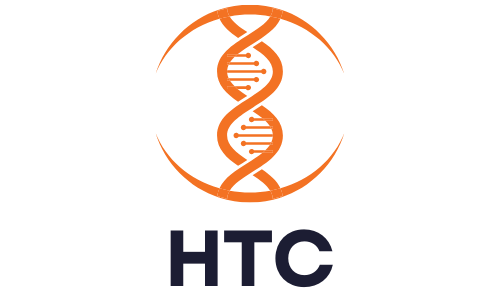Telehealth Expansion: Investment Opportunities and Market Dynamics
The rise of telehealth services marks a significant shift in the healthcare landscape, driven by technological advancements and changing patient needs. Telehealth, encompassing a range of services from video consultations to remote monitoring, has gained unprecedented importance in modern healthcare. This blog explores the rapid growth and expansion of telehealth services, examining the trends, market dynamics, and investment opportunities that define this burgeoning sector.
Telehealth refers to the delivery of healthcare services through digital and telecommunication technologies, enabling remote patient care, consultations, and monitoring. It includes video consultations, telemedicine platforms, remote monitoring devices, and mobile health apps. These technologies offer numerous benefits, including improved access to care, enhanced patient engagement, and cost-effective healthcare delivery.
The scope of telehealth is broad, encompassing various components such as:
- Video Consultations: Enable real-time interactions between patients and healthcare providers, facilitating diagnoses and follow-up care without the need for in-person visits.
- Remote Monitoring: Utilizes devices to track patient health metrics such as heart rate, blood pressure, and glucose levels, allowing continuous monitoring and timely interventions.
- Telemedicine Platforms: Provide a comprehensive suite of services, including electronic health records (EHR), appointment scheduling, and patient management tools.
The benefits of telehealth for patients and healthcare providers are manifold. Patients gain improved access to care, especially in rural and underserved areas, reduced travel time and costs, and greater convenience. Healthcare providers benefit from increased efficiency, the ability to monitor patients more effectively, and reduced strain on healthcare facilities.
Market Dynamics of Telehealth
The telehealth market has experienced significant growth, driven by several key factors. According to market research, the global telehealth market is projected to reach $559.52 billion by 2027, growing at a compound annual growth rate (CAGR) of 25.2% from 2020 to 2027.
- Increased Demand for Remote Care: The COVID-19 pandemic has accelerated the adoption of telehealth, as patients and providers sought safe alternatives to in-person visits.
- Technological Advancements: Innovations in digital technology, including AI, IoT, and 5G connectivity, have enhanced the capabilities and reliability of telehealth services.
- Healthcare Accessibility: Telehealth bridges the gap in healthcare access for patients in remote and underserved areas, offering them timely and convenient care.
The telehealth market is highly competitive, with numerous players offering diverse solutions. Major companies include Teladoc Health, Amwell, and Doctor on Demand, alongside emerging startups like Lemonaid Health and Hims & Hers. These companies differentiate themselves through innovative technologies, comprehensive service offerings, and strategic partnerships.
Technological Advancements in Telehealth
Technological innovations are at the core of telehealth's rapid expansion. Key advancements include:
AI and Machine Learning
AI and machine learning enhance telehealth services by enabling predictive analytics, personalized treatment plans, and efficient patient triage. These technologies can analyze large datasets to identify patterns and provide insights, improving diagnostic accuracy and treatment outcomes.
IoT and 5G Connectivity
The Internet of Things (IoT) facilitates seamless connectivity between devices, allowing real-time data collection and monitoring. 5G connectivity enhances the speed and reliability of telehealth services, supporting high-quality video consultations and remote monitoring.
Integration of Electronic Health Records (EHR)
Integrating EHR with telehealth platforms ensures comprehensive patient data is readily accessible, improving care coordination and continuity. EHR integration also supports efficient documentation and billing processes.
Wearable Devices and Remote Monitoring Tools
Wearable devices, such as smartwatches and fitness trackers, play a crucial role in remote patient monitoring. These devices continuously collect health data, providing valuable insights into patient health and enabling timely interventions.
Regulatory Changes and Policies
Regulatory frameworks play a critical role in shaping the telehealth landscape. Key regulations affecting telehealth include:
HIPAA and GDPR
The Health Insurance Portability and Accountability Act (HIPAA) in the United States and the General Data Protection Regulation (GDPR) in Europe set stringent standards for data privacy and security. Compliance with these regulations is essential for telehealth providers to ensure patient data is protected.
Recent Regulatory Changes
The COVID-19 pandemic prompted regulatory bodies to relax certain restrictions on telehealth, facilitating its rapid adoption. For instance, the U.S. government expanded Medicare coverage for telehealth services, allowing more patients to access remote care.
Challenges in Navigating Telehealth Regulations
Navigating the complex regulatory landscape poses challenges for telehealth providers. Ensuring compliance with diverse regulations across different regions requires significant resources and expertise. Additionally, ongoing changes in regulations necessitate continuous monitoring and adaptation.
Trends in Telehealth Expansion
Growth During the COVID-19 Pandemic
The COVID-19 pandemic catalyzed the widespread adoption of telehealth, with many healthcare providers and patients embracing remote care. The need for social distancing and minimizing exposure to the virus drove the shift towards telehealth services, resulting in a dramatic increase in usage.
Rise of Specialty Telehealth Services
Specialty telehealth services, such as mental health, dermatology, and chronic disease management, have gained traction. These services cater to specific patient needs, offering tailored care and expertise. For example, mental health telehealth platforms provide accessible and convenient therapy sessions, addressing the growing demand for mental health services.
Adoption in Rural and Underserved Areas
Telehealth has significantly improved healthcare access in rural and underserved areas, where medical facilities and specialists may be scarce. Remote consultations and monitoring enable patients in these regions to receive timely and quality care, reducing healthcare disparities.
Investment Opportunities in Telehealth
Investing in telehealth offers significant potential, given the sector's rapid growth and innovation. Investors should look for companies with strong technological capabilities, a robust customer base, and a clear value proposition. Promising areas include AI-driven telehealth solutions, remote monitoring technologies, and integrated telemedicine platforms.
Factors to Consider When Investing in Telehealth
Investors should evaluate several factors when considering telehealth investments:
- Market Potential: Assess the target market's size and growth prospects.
- Technology Differentiation: Determine the uniqueness and scalability of the technology.
- Regulatory Compliance: Ensure the company adheres to relevant regulations and standards.
- Business Model: Analyze the company's revenue streams and profitability.
Long-term vs. Short-term Investment Strategies
Long-term investments in telehealth can yield substantial returns as the sector continues to evolve and expand. Investors should focus on companies with sustainable business models, innovative technologies, and strong market positions. Short-term opportunities may arise from mergers and acquisitions, regulatory changes, or technological breakthroughs.
Recent investments in telehealth highlight the sector's potential. For instance, Teladoc Health's acquisition of Livongo for $18.5 billion in 2020 created a comprehensive virtual care platform, integrating chronic condition management with telehealth services. This strategic move positioned Teladoc as a leader in the telehealth market, driving significant growth and market penetration.
Notable Labs: Pioneering Precision Medicine Integration in Health Insurance
Notable Labs stands at the forefront of integrating precision medicine into healthcare, demonstrating how advanced genetic and molecular analyses can be seamlessly incorporated into standard healthcare coverage. This innovative approach addresses the diverse and complex needs of patients by tailoring treatments based on individual genetic profiles. By leveraging these advanced techniques, Notable Labs collaborates with insurers and healthcare providers to pioneer innovative approaches that ensure precision medicine treatments are accessible and affordable for all patients.
The commitment of Notable Labs to evidence-based practices and robust clinical data supports the development of reimbursement policies that recognize the value and cost-effectiveness of precision medicine. These policies are crucial for broadening access to personalized treatments, making them a viable option for a wider patient population. Notable Labs exemplifies the potential for precision medicine to transform patient care and improve health outcomes, setting a new standard for integrating cutting-edge medical advancements into everyday healthcare.
One of the key aspects of Notable Labs’ strategy is the emphasis on collaboration with insurers. By working closely with insurance companies, Notable Labs helps to create reimbursement frameworks that reflect the actual benefits of precision medicine. This collaboration ensures that insurers understand the long-term cost savings and improved patient outcomes associated with personalized treatments. These partnerships are essential for overcoming financial barriers and making precision medicine more widely available.
In addition to working with insurers, Notable Labs also partners with healthcare providers to integrate precision medicine into clinical practice. This integration involves training healthcare professionals on the latest genetic and molecular analysis techniques, ensuring they are equipped to deliver personalized care. By providing healthcare providers with the tools and knowledge necessary to utilize precision medicine effectively, Notable Labs enhances the overall quality of patient care.
Notable Labs’ approach to precision medicine extends beyond treatment to include prevention and early diagnosis. By identifying genetic predispositions to certain diseases, healthcare providers can implement early intervention strategies, potentially preventing the onset of serious conditions. This proactive approach not only improves patient outcomes but also reduces healthcare costs by avoiding expensive treatments and hospitalizations.
The use of precision medicine also allows for more accurate diagnoses, reducing the likelihood of misdiagnosis and inappropriate treatments. This accuracy leads to more effective treatment plans, as therapies can be tailored to target the specific genetic mutations driving a patient’s condition. The result is a higher success rate for treatments and a reduction in the trial-and-error approach often associated with traditional medicine.
Notable Labs is also at the cutting edge of research and development in precision medicine. By conducting clinical trials and research studies, they contribute to the growing body of knowledge in the field. These efforts help to validate new treatments and approaches, providing the evidence needed to support wider adoption of precision medicine. The company’s commitment to research ensures that they remain leaders in the field, continually pushing the boundaries of what is possible in personalized healthcare.
Moreover, Notable Labs’ dedication to data security and patient privacy is paramount. The integration of genetic and molecular data into healthcare systems necessitates stringent data protection measures. Notable Labs employs advanced encryption and security protocols to safeguard patient information, ensuring that sensitive data is protected against unauthorized access. This commitment to data security builds trust with patients and healthcare providers, facilitating the adoption of precision medicine.
As a leader in the field, Notable Labs is paving the way for a future where personalized healthcare is the norm, ensuring that each patient receives the most effective and individualized treatment possible. Their pioneering work in integrating precision medicine into healthcare demonstrates the transformative potential of this approach, setting a new standard for patient care. By making precision medicine accessible and affordable, Notable Labs is not only improving health outcomes but also reshaping the healthcare landscape for the better.
The impact of Notable Labs’ work extends beyond individual patients to the healthcare system as a whole. By promoting the adoption of precision medicine, they are driving a shift towards more efficient and effective healthcare. This shift has the potential to reduce overall healthcare costs, as personalized treatments can prevent complications and reduce the need for expensive interventions. The broader adoption of precision medicine also encourages further innovation and investment in the field, fostering a cycle of continuous improvement.
In conclusion, Notable Labs exemplifies the potential of precision medicine to revolutionize healthcare. Through their collaboration with insurers and healthcare providers, commitment to evidence-based practices, and focus on patient-centric care, they are setting a new standard for integrating advanced medical technologies into everyday healthcare. Their pioneering efforts are paving the way for a future where personalized healthcare is accessible to all, ensuring that each patient receives the most effective and individualized treatment possible. Notable Labs’ work is a testament to the transformative power of precision medicine and its ability to improve patient outcomes and reshape the healthcare landscape.
Case Studies of Successful Telehealth Companies
Teladoc Health
Teladoc Health is a pioneer in the telehealth industry, offering a wide range of virtual care services. The company's innovative approach and strategic acquisitions have propelled its growth, making it a market leader. Teladoc's comprehensive platform integrates telehealth, mental health, and chronic disease management, delivering holistic care to patients worldwide.
Amwell
Amwell, another prominent telehealth provider, has made significant strides in expanding its services. The company's telehealth platform connects patients with healthcare providers through video consultations, remote monitoring, and digital tools. Amwell's partnerships with major health systems and insurers have enhanced its market presence and accessibility.
Doctor on Demand
Doctor on Demand focuses on providing accessible and affordable healthcare through its telemedicine platform. The company's user-friendly app enables patients to consult with board-certified physicians, mental health professionals, and specialists. Doctor on Demand's emphasis on quality care and convenience has driven its success and market growth.
Lessons Learned from These Case Studies
These companies' success underscores the importance of innovation, strategic partnerships, and a patient-centric approach in the telehealth industry. By leveraging advanced technologies and addressing patient needs, telehealth providers can achieve significant market penetration and growth.
Challenges and Risks
Despite its potential, telehealth faces several challenges and risks. Technical issues, such as connectivity problems and software malfunctions, can disrupt services and impact patient care. Data privacy and security concerns are paramount, as telehealth platforms handle sensitive patient information. Ensuring robust cybersecurity measures is crucial to maintaining patient trust and compliance with regulations.
Navigating the complex regulatory landscape poses challenges for telehealth providers. Compliance with diverse regulations across different regions requires significant resources and expertise. Additionally, ongoing changes in regulations necessitate continuous monitoring and adaptation.
Telehealth providers can mitigate risks and overcome barriers by investing in robust infrastructure, adopting best practices for data privacy and security, and fostering partnerships with regulatory bodies. Engaging patients and healthcare providers in the development and implementation of telehealth solutions can also enhance acceptance and adoption.
Future Trends and Innovations
The telehealth sector is poised for continued growth and innovation. Emerging trends include the integration of AI and machine learning for predictive analytics, the expansion of remote monitoring capabilities, and the development of personalized care plans. Additionally, telehealth providers are exploring new service offerings, such as virtual reality therapy and remote surgical consultations.Technological advancements will continue to shape the future of telehealth. The deployment of 5G networks will enhance connectivity and enable real-time, high-quality video consultations. Advances in AI and data analytics will improve diagnostic accuracy and treatment outcomes. Wearable devices and remote monitoring tools will provide continuous health data, enabling proactive and preventive care.
Over the next decade, telehealth is expected to become an integral part of healthcare delivery. The sector will see increased adoption across various medical specialties, expanded access in rural and underserved areas, and greater integration with traditional healthcare systems. Telehealth providers will continue to innovate, offering new services and improving patient care. The rapid expansion of telehealth services marks a significant transformation in healthcare delivery. Telehealth offers numerous benefits, including improved access to care, enhanced patient engagement, and cost-effective healthcare delivery. Despite challenges and risks, the potential of telehealth to revolutionize healthcare is undeniable.










